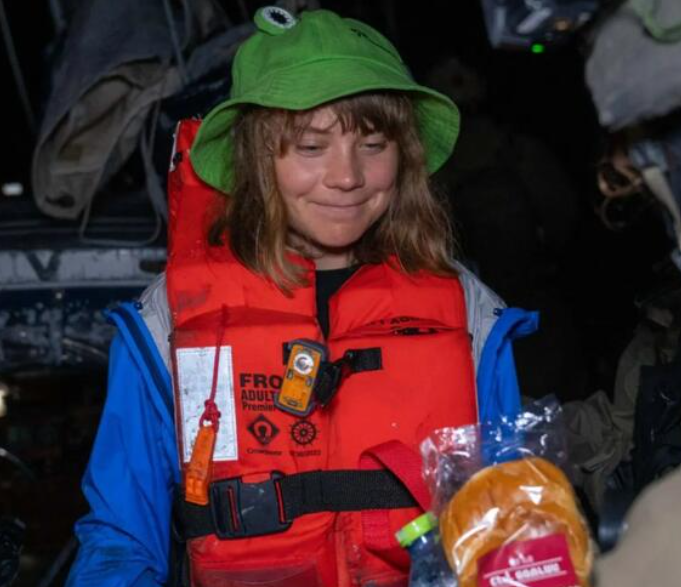In June 2025, Greta Thunberg, the 22-year-old Swedish climate activist, undertook a contentious mission to Gaza aboard the ship Madleen, departing from Catania, Italy. The flotilla, comprising activists and a diplomat from Sweden and France, aimed to deliver humanitarian aid to Palestinians in Gaza and protest Israel’s longstanding blockade and policies in the region. The voyage sparked a strong response from Israeli Defense Minister Israel Katz, who ordered the Israeli Defense Forces to prevent the vessel’s arrival in Gaza. The mission attracted widespread media coverage and criticism, highlighting the intersection of climate activism and international humanitarian issues amid the ongoing Israeli-Palestinian conflict.
Background and Mission Objectives
The Gaza Strip has been under a strict blockade imposed by Israel since 2007, citing security concerns related to the Hamas administration in the area. The blockade restricts the movement of goods and people, leading to significant humanitarian challenges for Gaza’s population. The flotilla led by Greta Thunberg was organized to bring attention to these issues, delivering essential aid supplies that include food, medical equipment, and educational materials. The activists explicitly stated that their mission was both humanitarian and symbolic, aiming to challenge the blockade and promote dialogue on human rights and environmental justice in the region.
Composition of the Flotilla
The vessel Madleen departed from the port of Catania, situated on the eastern coast of Sicily, Italy, with a group comprising international activists known for their work in climate and social justice, as well as a diplomat representing European interests. Notable members included Swedish and French nationals who have previously engaged in high-profile activism campaigns. The group coordinated with various NGOs to ensure the aid met the immediate needs of Gaza’s civilians and to maximize the diplomatic impact of their journey.
Israeli Government Response
Israel’s Defense Minister, Israel Katz, publicly condemned the flotilla, labeling it as a “provocative act designed to undermine Israel’s security.” Following this statement, the Israeli Defense Forces (IDF) were instructed to intercept the Madleen before it could reach the Gaza coastline. The IDF’s stated objective was to enforce the naval blockade and prevent what they described as unauthorized and potentially destabilizing actions. This move raised concerns among international observers about freedom of navigation and the humanitarian implications for Gaza.
International Reactions and Media Coverage
The flotilla drew considerable attention from global media outlets, reflecting the complex interplay between environmental activism and geopolitical conflict. Supporters praised Greta Thunberg’s involvement as a bold extension of her climate advocacy into urgent social justice realms, highlighting the environmental degradation exacerbated by conflict and blockade conditions. Critics conversely accused the mission of politicizing humanitarian aid and escalating tensions in an already volatile region. Several international organizations called for restraint and emphasized the importance of dialogue to resolve such disputes.
Implications for Climate Activism and Humanitarian Efforts
This mission marks a significant example of climate activism expanding its focus to include broader humanitarian issues, particularly in politically sensitive contexts. The intersection of ecological concerns with human rights challenges in Gaza underscores the multifaceted nature of environmental justice in conflict zones. Observers suggest that such actions may influence future activist strategies and diplomatic engagements, potentially encouraging greater cooperation between environmental groups and humanitarian organizations worldwide.
Ongoing Developments
As of the time of reporting, the situation remains fluid. The Madleen’s progress is being closely monitored by international agencies and governments due to the potential ramifications for regional stability and humanitarian access. Updates will continue to be provided as negotiations or enforcement actions unfold in response to this high-profile mission.
In conclusion, Greta Thunberg’s June 2025 mission aboard the Madleen to Gaza represents a notable convergence of climate activism and humanitarian advocacy within a highly complex geopolitical landscape. By attempting to deliver aid and challenge the Israeli blockade, the flotilla has not only highlighted the severe humanitarian needs in Gaza but also sparked important debates about the role of environmental activists in international conflicts. The strong response from the Israeli government, coupled with divided international reactions, underscores the delicate balance between security concerns and the imperative for humanitarian access. As the situation continues to evolve, this mission may pave the way for increased collaboration between environmental and humanitarian efforts in addressing the intertwined challenges of conflict, human rights, and ecological justice.

